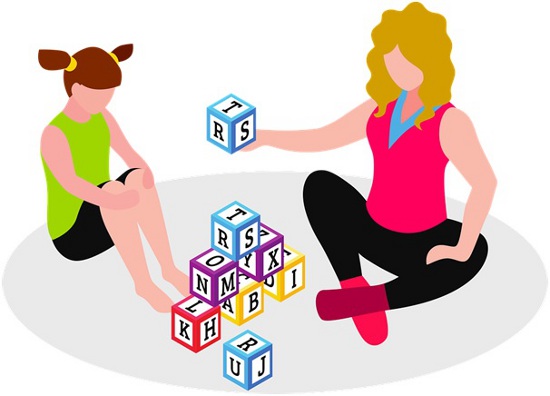There is no one-size-fits-all answer to the question of how to help a family living with autism. Each individual on the spectrum will have different needs, and each family will approach therapy in its own way. However, there are some general tips that can be useful for families looking to improve their lives and the lives of their autistic loved ones.


1. Be patient and understanding
One of the most important things to remember when dealing with autism is that it is a spectrum disorder. This means that each person with autism will experience the condition in a unique way. Some may be highly verbal, while others may be nonverbal. Some may be able to live relatively independently, while others may require constant care. It is important to remember that each individual is different and to approach each situation with patience and understanding.
For example, if you have a family member who is nonverbal, don’t assume that they don’t understand what you’re saying. Many people with autism are highly intelligent and have very good listening skills, even if they can’t respond verbally.
Additionally, it’s important to be patient when communicating with someone with autism. Many people on the spectrum process information more slowly than neurotypical people, so it may take them longer to respond to questions or follow conversations.
2. Seek out professional help
If you are struggling to cope with a diagnosis of autism, it is important to seek out professional help. There are many therapists and counselors who specialize in working with families affected by autism. You can research CBT, RDI, or ABA therapy method to find a professional that can help your family. In addition to seeking professional help, there are also many support groups available for families dealing with autism. These groups can provide valuable information and resources, as well as a sense of community.
When looking for a professional to help your family, it’s important to find someone who is a good fit. Not all therapists or counselors are created equal, and you may need to interview a few before finding someone who is a good match for your family.
For example, if you have a child with autism, you may want to find a therapist who specializes in working with children on the spectrum. Or, if you are struggling to cope with your own diagnosis of autism, you may want to find a counselor who specializes in working with adults on the spectrum.
3. Educate yourself and your family
One of the best things you can do for your family is to educate yourself and your loved ones about autism. The more you know about the condition, the better equipped you will be to deal with the challenges that come with it. There are many books, websites, and articles that can provide valuable information about autism. In addition, there are many organizations that offer support and resources for families affected by autism.
Some of the topics you may want to learn about include:
- The signs and symptoms of autism
- How to get a diagnosis of autism
- The different types of therapies and interventions available
- How to create an inclusive environment for your family member with autism
4. Advocate for your loved one
If you have a family member with autism, it is important to be their advocate. This means being their voice when they can’t speak for themselves. It also means fighting for their rights and making sure they have access to the resources they need.
There are many ways to advocate for your loved one with autism. You can start by educating yourself about their rights and the resources available to them. You can also join a support group or attend autism-related events. In addition, you can contact your local representatives and let them know about the issues that are important to you and your family.
5. Create a supportive environment
One of the best things you can do for your family is to create a supportive environment. This means making sure your home is safe and welcoming for your loved one with autism. It also means providing them with opportunities to socialize and interact with others.
There are many ways to create a supportive environment for your family member with autism. You can start by making sure your home is safe and accessible. You can also provide them with opportunities to socialize and interact with others. Additionally, you can create a support system for yourself and your family. This may include joining a support group or seeking out professional help.
6. Seek out resources and support
If you are struggling to cope with a diagnosis of autism, it is important to seek out resources and support. There are many organizations that offer resources and support for families affected by autism. You can also contact your local representatives and let them know about the issues that are important to you and your family. Additionally, you can join a support group or seek out professional help.
For example, if you have a child with autism, you may want to find a therapist who specializes in working with children on the spectrum. Or, if you are struggling to cope with your own diagnosis of autism, you may want to find a counselor who specializes in working with adults on the spectrum.
No matter what challenges you and your family are facing, there are resources and support available. Don’t hesitate to reach out for help when you need it.


Autism can present many challenges for families, but there are also many resources and support available to help them cope. If you are struggling to cope with a diagnosis of autism, it is important to seek out professional help. There are many organizations that offer resources and support for families affected by autism. You can also contact your local representatives and let them know about the issues that are important to you and your family. Additionally, you can join a support group or seek out professional help.
















